Last Friday, during a recent business planning trip to Fiji, I had the pleasure of being taken on an impromptu tour guided by a local, to a Fijian village school, Qalitu District School, about 20 minutes outside of Savusavu town.
It was an experience I won’t forget.
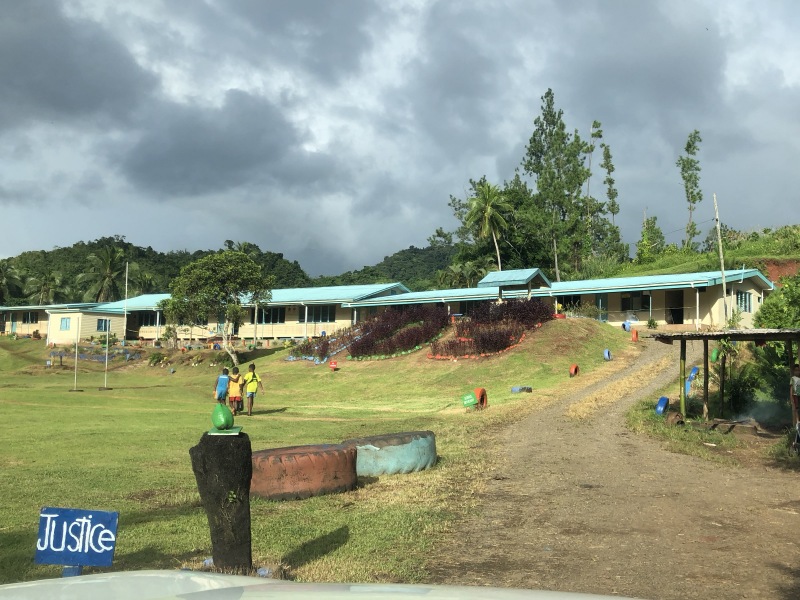
As we arrived the headmistress noticed and came to greet us before taking us into the school office.
Our guide explained that we were tourists from Australia and Singapore hoping to see a local village school and hand out some gifts we had brought with us including some colouring-in books. The headmistress warmly welcomed us and took us on a tour from classroom to classroom to meet some of the children during their lessons and we handed out gifts to students who won a prize by answering quiz questions correctly.
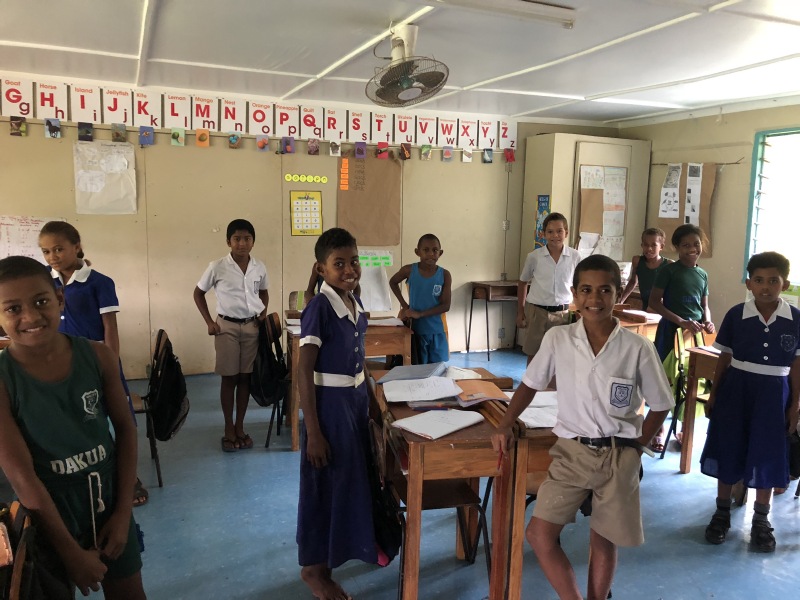
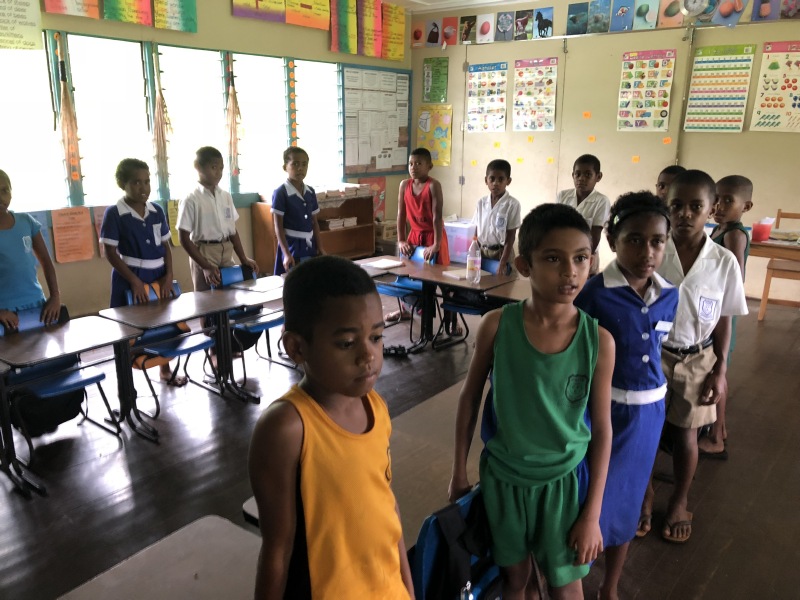
It was striking to see how clearly committed the young boys and girls were to their education in the facilities available, and how committed the teachers were to providing the best education possible to their students.
After the tour, we returned to the school office with the headmistress to chat some more about the school.
I sought to understand more of the challenges facing education delivered in remote schools in Fiji.
I explained that, in my view, it was important for visitors like us, who might come to Fiji from afar, to not bring with us and certainly not seek to impose our foreign perspective, that of a different country and culture, to the task of thinking about what might be useful to improve the current learning environment in schools like hers. That we should instead listen to the unique challenges she faces. With that context, I asked her to think of the one thing in her mind that the school needed most to improve the children’s’ learning experience.
After a long pause, she explained that the academic curriculum had changed recently in Fiji and this required grades 7 and 8 to be taught computer science, but she was worried about how to achieve this because the school had only 2 computers, one of which was in the administration office and used full time for administrative work. It was obvious to me from the look that swept across her face as she told me this, that it was something of major personal concern to her.
She paused again and added that, in terms of the children themselves, there were some students in the school whose family could not afford to buy them school bags and stationary, so if she were to pick one thing for the students themselves, it would be school bags and stationary, to level the playing field for those students. I asked her how many students were in that situation and she estimated between 15 and 20 out of the 250 students.
We thanked her for the opportunity to gain some real insight into schooling in Fiji, before wishing her and her teachers the very best.
As we left, we walked past a room labelled ‘Computer Lab’. A sign hung outside the door and it read: “Qalitu District School PC Room was officially opened by the PEO, Mr Shamone Cabealaqa on the 28th of November 2014”. We looked inside to see that, sure enough, in a room full of computer desks lining the wall, sat a solitary computer with a young boy working on it alongside his teacher.
It was not possible to leave that tour without feeling touched by the dedication of the students to maximising their learning and the dedication of the teaching staff to maximising the learning experience with the limited resources available, not to mention the joy they evidently brought to the task each day. I left inspired and sharply reminded of how important education is in setting up young men and women for their futures.
A week later, I returned to Qalitu District School after the students had finished school for the week and called on the headmistress again, this time to hand over to her, on behalf of Merlehan Group, 20 school bags packed full of pens, pencils, stationary and notepads and 8 computers for the Computer Lab that we had purchased from the main town of Labasa a few hours round trip away.
I asked her to use her own initiative to find the kids that need the school bags and supplies most and hand them out when they return to school on Monday and I told her that it was a pleasure on behalf of our firm to assist the school.
She was speechless.
She eventually told me she was so happy she wanted to scream. She called teachers from the village to help unload the 25 or so boxes we had delivered and mentioned a few times that it felt like a dream, that she needed to blink to make sure it wasn’t a dream, and that she couldn’t possibly put into words what this means to the school and how thankful she was for our contribution.
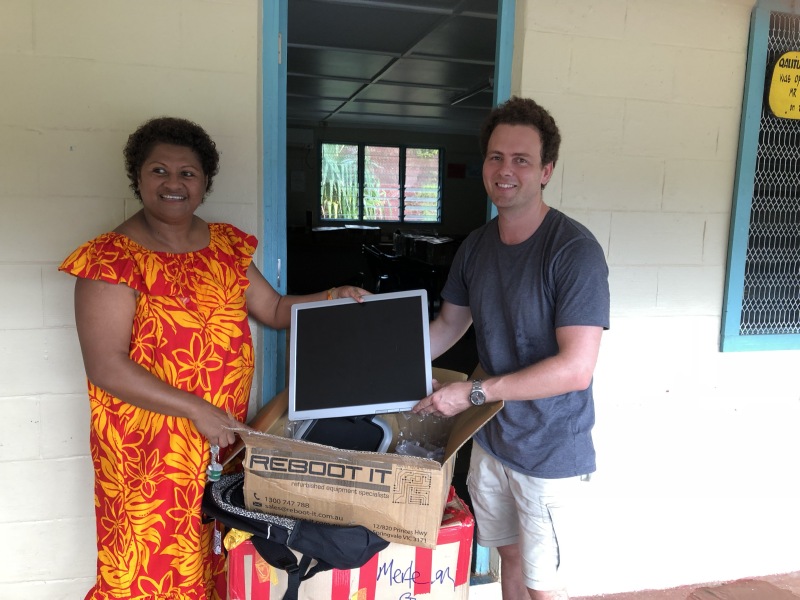
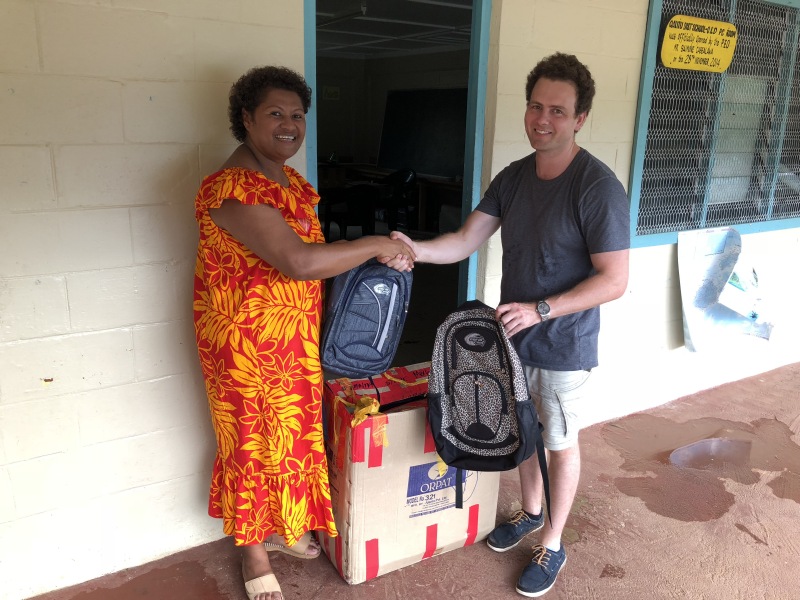
‘Success’ without contribution is hardly success at all. Come Monday, 250 Fijian primary school students will turn up to Qalitu District School to find their computer lab finally full of computers and a new world of possibilities open to them in their education; and the school’s 20 students without basic stationary or a school bag will join their peers with the same resources and support.
We wish the students and the teachers of Qalitu District School in Fiji the very best for their future and thank them for inspiring us.
